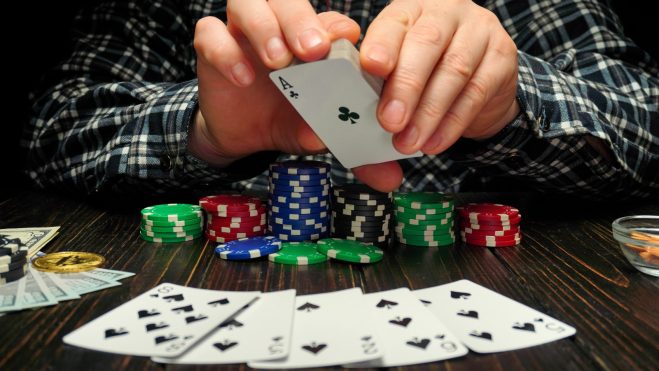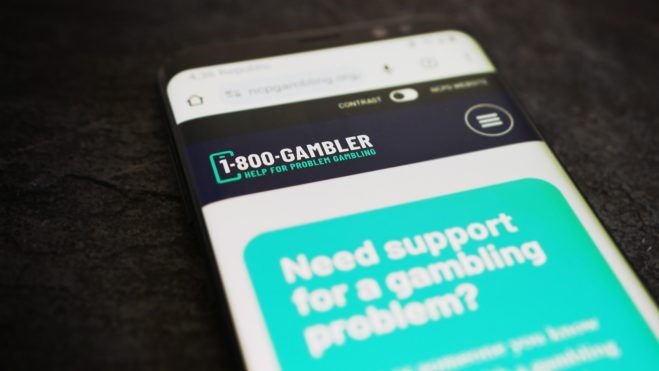Poker And Casino Players Deserve The Same Protections As Sports Bettors
What explains the discrepancy between online sports betting and these other forms of online gambling? There are stated and unstated reasons.
4 min

Since the Supreme Court of the United States (SCOTUS) struck down the Professional and Amateur Sports Protection Act (PASPA) on May 14, 2018, 29 states and the District of Columbia (D.C.) have legalized mobile sports betting. That’s a number almost as impressive as the number of acronyms I managed to fit into one sentence.
The impetus to legalize sports betting was to protect consumers from the dastardly offshore sites. However, as I wrote in my Straight to the Point newsletter in May:
When it comes to legalizing gambling, the goal is money; the selling point is consumer protection. The first has to make sense for everyone involved (everyone who matters anyway) before the second becomes the campaign’s public face.
If it were about consumer protections, online poker and casino players would be afforded the same legal and regulated options as sports bettors.
Online poker and online casino legalization were greenlit more than five years before the repeal of PASPA, following a Department of Justice Office of Legal Counsel opinion that put the decision of intrastate online gambling in the hands of each state. Yet its progress in the U.S. has been sluggish, with just seven states offering legal, regulated online casino games and an eighth, Nevada, offering online poker but not iCasino. They are, in order of legalization:
- Delaware
- New Jersey
- Nevada
- Pennsylvania
- Michigan
- West Virginia
- Connecticut
- Rhode Island
So, what explains the discrepancy between online sports betting and these other forms of online gambling? Once again, there are stated (publicly) and unstated reasons.
(Stated) reason no. 1: Social harms
The most oft-stated reason for the slow adoption of online casinos is the potential social harm.
Despite no substantive evidence of such harms from legal online gambling states, the late Sheldon Adelson’s talking point, “a casino in every pocket,” still resonates with some.
While there is a widely held belief that online casino players could be at a higher risk of developing gambling disorders, very rarely has it been argued that online poker is more harmful than sports betting. This begs the question, why not legalize online poker separately, like in Nevada?
(Unstated) reason no. 2: There’s no money in poker
Online poker’s problem is that, by itself, it doesn’t produce much revenue. As an example, in the most recent monthly revenue report in Pennsylvania, online casino generated $174.1 million in revenue and online poker produced $2.27 million.
And for lawmakers, no money equals no interest.
In most locales, online poker is seen as an add-on to online casinos, one of many casino games the legalization of online casinos would authorize.
But once again, why do sports bettors deserve a legal, regulated landscape while poker players are left to fend for themselves and hope they (a) get paid by an offshore site and (b) don’t get cheated?
[hfe_template id=’4095′](Stated) reason no. 3: Cannibalization
Another oft-cited reason for the lack of legal online casinos is cannibalization. Whether it’s fear of declining visitation at existing brick-and-mortar properties or potential job loss, cannibalization concerns have existed since the dawn of the online gambling era in the 1990s.
Funnily enough, whenever a land-based casino corporation develops a robust online arm, its fears magically vanish.
Cannibalization has become a divisive issue over the last few legislative cycles, with evidence for and against the idea. However, let’s turn our attention to online poker specifically: There is zero threat of cannibalization and every scrap of data points to online poker growing brick-and-mortar poker.
Brick-and-mortar poker rooms were busiest during the online poker boom (2004-2011). During that period, casinos that never offered poker or shuttered their poker rooms long before suddenly removed slot machines to make room for poker tables.
Kyle Kirkland, the president of the California Gaming Association, once told me that California cardrooms saw traffic decline by as much as 40% following the shutdown of online poker in April 2011.
And Nevada’s poker room/table database clearly shows the impact of online poker.
(Unstated) reason no. 4: On my terms
Behind closed doors, the cannibalization debate is far more nuanced but boils down to what I call protectionism.
As the number of potential stakeholders increases, so does the potential for problems as varied interests jockey for the best deal.
There are obvious conflicts between commercial and tribal gaming, racing, the lottery, and online operators.
Less obvious are the intra-industry conflicts, which were a significant hurdle during Pennsylvania’s efforts to legalize online gambling in the mid-2010s and are currently playing out in Maryland.
Some land-based casinos are more supportive of online casinos than others.
As I noted earlier, one reason is that some are already “more online” than others. They have developed infrastructure and are ready to go on Day 1. Other casino operators lag, and it’s in their best interest to slow down the process as they search for a partner and build their online gambling infrastructure.
Another reason is who will benefit from legalization and in which direction the playing field is currently tipped.
In the past, I’ve likened this to a pizza parlor that serves a good but not great pie but is centrally located in town and has plenty of parking, while a rival pizza shop has better pizza at a lower price but is located on the outskirts of town and is a bit of a pain to get to. If the town considered authorizing delivery (let’s assume the local government has a say), one of these establishments would be for delivery and the other against it.
A casino in a major metropolitan area wants to maintain its advantage, and online gambling is the ultimate equalizer. That’s how Pennsylvania got an exorbitant tax rate on slot machines. Like the centrally located pizza shop that may eventually sign off on delivery if there was a $5 delivery charge, well-trafficked casinos were OK with a financially burdened online market.
The upshot
If it were about consumer protection, online casinos and poker would be legal in as many states as sports betting.
If social harm and cannibalization were the issue, and it wasn’t about money, online poker would be legal nationwide.
It’s not, because, at the end of the day, the entire discussion boils down to money: how much money the state can generate in tax revenue and who will benefit the most among the stakeholders.





